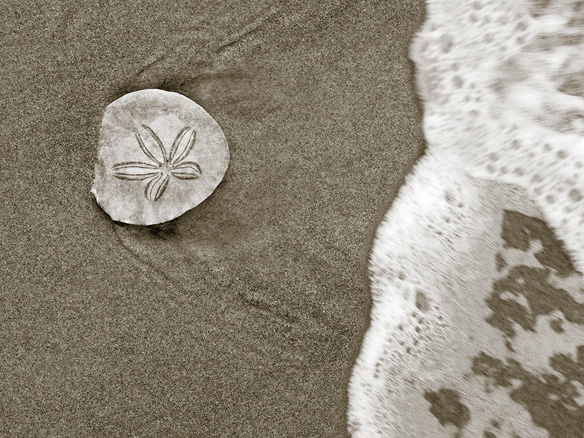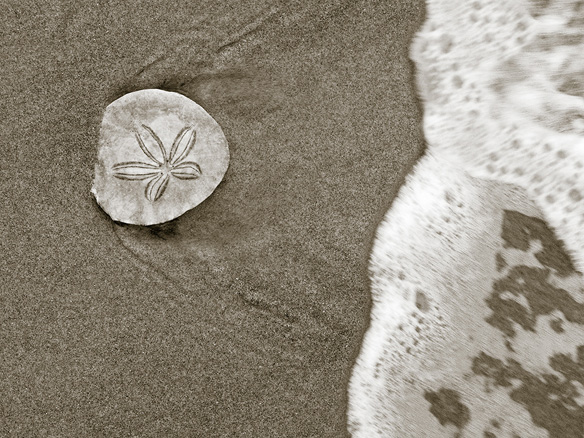
Sand Dollar. Photo source: ©© Ironrodart
By Richard Waite and Benjamin Kushner, ©© WRI;
Governments, corporations, and development agencies are increasingly interested in putting a dollar value on ecosystems in order to balance conservation and development needs, a concept known as “economic valuation.”
For example, St. Maarten’s government recently established the country’s first marine national park after a local organization found that the area’s coastal ecosystems contribute $58 million per year through tourism and fisheries. Belize enacted a host of new fishing regulations based on a WRI valuation, which found that coral reef- and mangrove-associated tourism contributes $150 million-$196 million per year to the country’s economy. And in Bonaire, park managers used economic valuation to justify the Bonaire Marine Park’s establishment of user fees—making it one of the few self-financed marine parks in the Caribbean.
These stories show that economic valuation can indeed lead to better coastal policy, conserving these ecosystems and securing their important economic contributions. However, according to new WRI research, these cases tend to be the exception in the Caribbean.
Economic Valuation and Coastal Policy in the Caribbean
In the Caribbean, there is keen interest in economic valuation of coastal ecosystems to inform policy and improve natural resource management. But while the literature on the value of coral reefs and mangroves in the Caribbean continues to grow, these ecosystems continue to decline.
WRI and the Marine Ecosystem Services Partnership (MESP) took a closer look at the impact of previous economic valuation studies in the Caribbean. Out of more than 200 studies of the economic value of the Caribbean’s marine ecosystem goods and services, we were only able to identify 13 that actually influenced marine and coastal management policies, such as those in Bonaire, St. Maarten, and Belize.
But There Are Success Stories We Can Learn From
While the findings on these studies’ overall influence were disheartening, the 13 success stories we identified highlight the potential for economic valuation to have major influence. In fact, they act as a road map for how to effectively use economic valuation to inform sound marine policy and lead to better outcomes in coastal zone management. We found that contextual, procedural, and methodological conditions all influence success rates.
Context: Having in-country champions, a high economic dependence on coastal resources, and good governance are key contextual elements that help valuation studies make policy waves. For example, coral reef-related tourism is central to St. Maarten’s economy. Reefs and coralline beaches attract 2 million visitors to the country every year, and tourism directly or indirectly employs 75 percent of the country’s population. As a result, St. Maarten’s economic valuation study was much more likely to have a meaningful influence on decision-making than a study in a less marine-centric economy.
Procedure: Many conditions that can lead to policy influence are within an economic valuation practitioner’s control. Soliciting strong stakeholder engagement, conducting effective and targeted outreach, and being clear about methods, assumptions, and limitations all helped studies become influential. For example, WRI’s strong in-country partnerships in Belize as well as partners’ access to decision-makers helped its Coastal Capital valuation influence decisions at the highest levels of government. Belizean partners requested the valuation, were deeply engaged throughout the process, and are still using the results to further their advocacy and conservation efforts.
Methodology: Influential studies must address a specific policy question or management challenge, as the question determines the appropriate valuation method, level of accuracy required, data needs, costs, scale, and time constraints. In Bonaire, for example, economists conducted valuations to answer the specific question of how high user fees should be to achieve sustainable financing for the Bonaire Marine Park. Interestingly, we found that the 13 influential studies used a wide variety of valuation methodologies—suggesting that no one methodology is inherently “best,” but rather that the choice of methodology depends on the issues being addressed.
These are just a few of the conditions we found that influence an economic valuation study’s policy impacts. For a more comprehensive list and lessons learned, read our full report (infra).
Achieving Greater Success
It’s clear that economic valuation practitioners in the Caribbean need to do much more to ensure that ecosystem valuation studies have a greater influence on policy-making and contribute to more effective conservation of threatened coastlines. In order to achieve more meaningful impacts, practitioners must strategically choose, design, and execute valuation studies; communicate valuation results to target audiences; and share successes and failures with other practitioners. Through better communication and closer tracking of the influence of our work, we can enlarge the catalog of valuation success stories and learn more about the ingredients of success.
The results of this review will inform WRI’s and our partners’ efforts to produce a standardized framework for economic valuation of coastal ecosystems in the Caribbean. By gathering information about what works and establishing a consistent framework, we can ensure that more economic valuation studies result in effective policies—thereby helping to safeguard the Caribbean’s coastal and marine resources for future generations.
“Should We Put a Price On Nature If We Are Going To Save It?”









